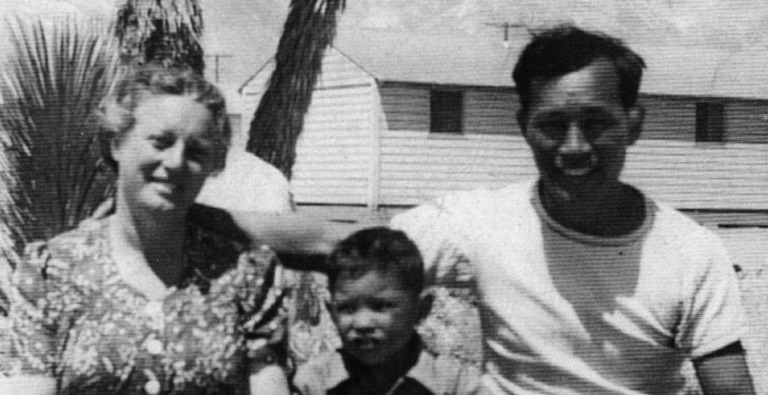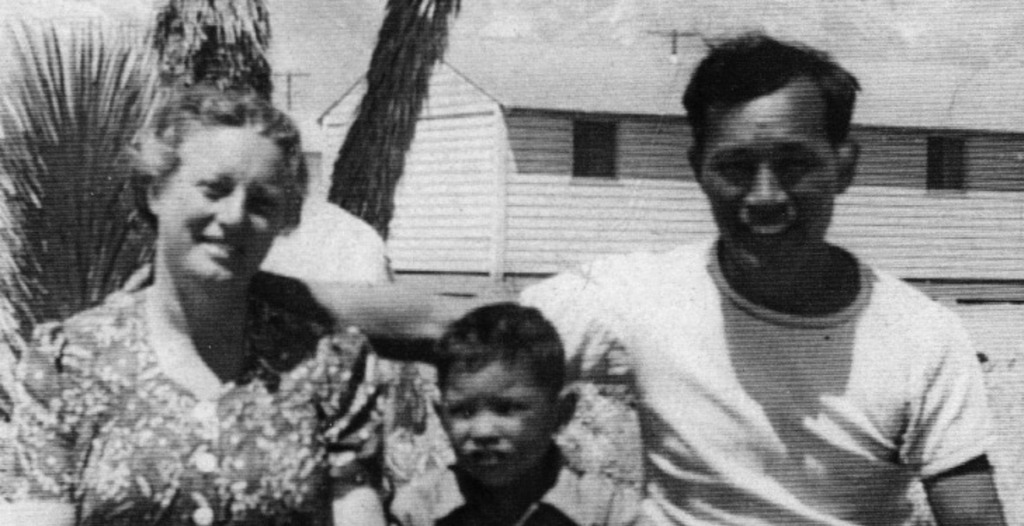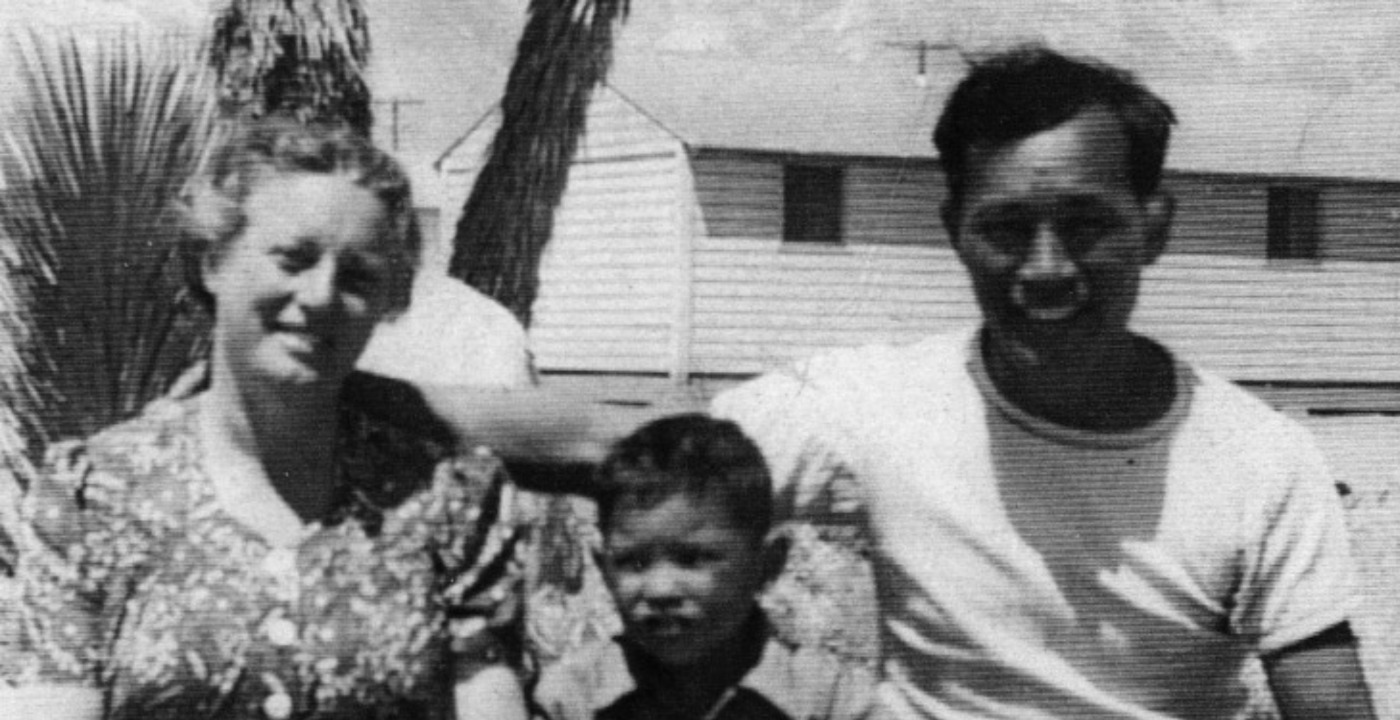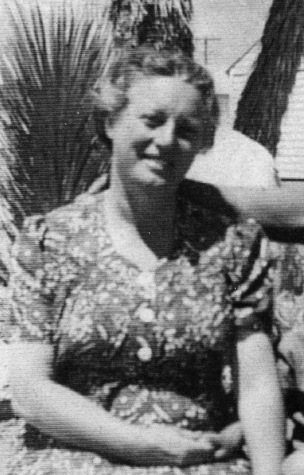Birth
New York City, 1906.
Death
San Francisco, CA, 1988.
Elaine Black Yoneda was an American labor and civil rights activist. She was a well-known communist and anti-fascist.
In the 1930s, she rose to prominence within the Communist Party of the USA (CP-USA) first in L.A. and San Francisco; she was a Vice President of the International Labor Defense. This was a decade of increased opportunities for women in the party. Elaine was well-known in California labor activism, and she garnered the nickname “Red Angel” as she would often appear at the courthouse to bail out workers and labor unionists. After World War II, she was less active but still engaged through the Women’s Auxiliary of the International Longshore and Warehouse Union. She was honored by the ILWU at the time of her death in 1988.
Personal Information
Name(s)
Elaine Black Yoneda, b. Elaine Rose Buchman. See also: Elaine Russell; Elaine Black.
Date and place of birth
New York City, 1906.
Death and place of death
San Francisco, CA, 1988.
Family
Mother: Molly Buchman, b. Molly Kvetnay 1885-1970.
Father: Nathan Buchman, 1883-1975.
Brother: Abraham (Al) Buchman, b. 1909.
Marriage and Family Life
First husband: Ed Russell. Married 1925; divorced 1934. Daughter with Ed: Joyce Russell, b. 1927.
Second husband: Karl Yoneda, b. 1906. Son with Karl: Thomas Culbert Yoneda, b. 1939.
Education
Left high school to attend secretarial school. Learned trade unionism and Communist ideology from her parents.
Religion
Jewish
Transformation(s)
Elaine Yoneda was drawn into Communist labor activism due to her parents’ involvement and the injustices she witnessed at labor protests in Los Angeles, CA. During the 1930s, she rose to prominence within the Communist Party of the USA (CP-USA) first in L.A. and San Francisco; she was a Vice President of the International Labor Defense. This was a decade of increased opportunities for women in the party. Elaine was well-known in California labor activism, and she garnered the nickname “Red Angel” as she would often appear at the courthouse to bail out workers and labor unionists.
After the bombing of Pearl Harbor, Elaine insisted on accompanying her husband Karl and their son Tommy to the Manzanar Relocation Center. After the war, Elaine and Karl were active in the movement for reparations to Japanese Americans, the anti-nuclear weapons movement, and other peace movements.
Contemporaneous Network(s)
Happy Brannan
Harry Bridges
Leo Gallagher
Tom Mooney
Paul Robeson
Ida Rothstein
Louise Todd
Anita Whitney
less
Significance
Contemporaneous Identifications
Communist, anti-fascist, labor activist.
Reputation
Elaine was well known in the 1930s in the labor community of California. After World War II, she was less active but still engaged through the Women’s Auxiliary of the International Longshore and Warehouse Union. She was honored by the ILWU at the time of her death in 1988.
Legacy and Influence
Elaine’s portrait is included in a mural in the ILWU Hall in San Francisco, CA.
less
Controversies
Controversy
Elaine and her husband Karl did not oppose the US government’s exclusion and incarceration of Japanese Americans during WWII, even though they were incarcerated with their 3-year old son. As avowed Communists, they were anti-fascist and supported the US war effort. This continued to be a source of controversy for them following the war.
less
Clusters & Search Terms
Current Identification(s)
Labor history, US Communist History, the history of Japanese American Exclusion and Incarceration, Immigrant history.
Search Terms
CP-USA; International Labor Defense; Japanese American Exclusion and Incarceration; California Jewish history.
References in existing schemas
“Feminist Biography and the Privilege of Appearing in the Archive,” featuring Elaine Black Yoneda.
less
Bibliography
Sources
California Historical Society. Only What We Could Carry: The Japanese American Internment Experience. Berkeley, CA: Heyday, 2000.
Eisenberg, Ellen. The First to Cry Down Injustice?: Western Jews and Japanese Removal during WWII. Lanham, MD: Lexington, 2008.
Elliott, Wendy. “The Jews of Boyle Heights, 1900–1950: The Melting Pot of Los Angeles.” Southern California Quarterly 78, no. 1 (1996): 1–10.
Kann, Kenneth L. Comrades and Chicken Ranchers: The Story of a California Jewish Community. Ithaca, NY: Cornell University Press, 1993.
Raineri, Vivian McGuckin. The Red Angel: The Life and Times of Elaine Black Yoneda, 1906–1988. New York: International, 1991.
Schreiber, Rachel. Elaine Black Yoneda: Jewish Immigration, Labor Activism, and Japanese American Exclusion and Incarceration. Philadelphia: Temple University Press, 2021.
Varzally, Allison. Making a Non-white America: Californians Coloring outside Ethnic Lines, 1925–1955. Berkeley: University of California Press, 2008.
Wild, Mark. Street Meeting: Multiethnic Neighborhoods in Early Twentieth-Century Los Angeles. Berkeley: University of California Press, 2005.
Primary sources (selected):
Bishop, Katherine. “Elaine Black Yoneda, 81, Radical Labor Activist.” New York Times, May 30, 1988. Available at https://www.nytimes.com/1988/05/30/obituar ies /elaine-black-yoneda-81-radical-labor-activist.html.
“Eyewitness, An.” “What Does She Know about Halibut?” Labor Defender
(October 1934): 8.
Yoneda, Elaine. “Trade Union Defense Builds the ILD.” Labor Defender
(October 1935): 15–16.
Yoneda, Karl, and Elaine Yoneda. “Manzanar: Another View.” Rafu Shimpo,
December 19, 1973.
Archival resources (selected):
Elaine Black Yoneda Collection, Labor Archives and Research Center, San Francisco State University.
Elaine Black Yoneda interviewed by Arthur Hansen and Betty Mitson, March 2–4, 1974, San Francisco, CA. Oral History #1377a-b, transcript, Japanese Americans Project, Center for Oral and Public History, California State University, Fullerton.
Elaine Black Yoneda Oral History, MS 3524, California Historical Society. Series of interviews by Lucy Kendall, from February 23, 1976, to June 24, 1977.
Web resources (selected):
https://en.wikipedia.org/wiki/Elaine_Black_Yoneda
https://encyclopedia.densho.org/Karl_Yoneda/
Issues with the sources
Elaine often appears in sources about her husband, Karl Yoneda.




Comment
Your message was sent successfully